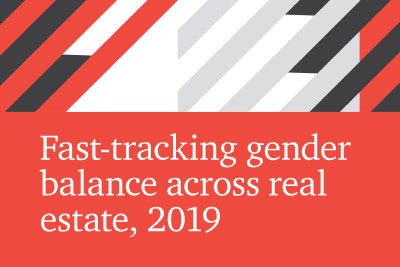By joining Real Estate Balance’s email list, you agree to receive email updates from time to time about organisation news, events being held and information about our partners in accordance with the terms outlined in our privacy notice, which you can read in full here.
Sign upReal Estate Balance membership survey 2020

Our industry wide survey was undertaken in September 2020.
Click here for the initial findings.
Analysis has been kindly been provided for us by Sam Monger of Grosvenor who undertook the survey in 2020 and well as analysis of some of the comments from employees which have been collated by our Board member Karen Friebe of Bird & Bird and her colleague Amy Cole.
The key themes/observations emerging from the Real Estate Balance Survey 2020 which we would like to highlight are:
- An important positive is that there has been good progress amongst our member companies in demonstrating the business case for promoting diversity and promoting commitment to improving diversity within their businesses;
- However, it is clear that more focus and action is required on data, tracking and reporting, cultural change and influencing the supply chain;
- The number of women at senior leadership level has continued to drop sharply despite there being a good pipeline of women from graduate to middle manager levels. The key challenge is how the industry deals with the issues that continue to cause this drop in representation at senior leadership level.
In addition, we would particularly draw your attention to the slides around ethnicity - this is the first time that we have asked about ethnicity in the survey and also to the questions around COVID which show people’s preferences for how and where they work as we come out of the pandemic.
The Board of Real Estate Balance met on 3rd December to consider what had come out of the Real Estate Balance Survey 2020 and the Leadership breakfasts discussions in November. They came to the following conclusions:
- You have all signed up to our 10 CEO Commitments for Diversity but what the Real Estate Balance Survey 2020 has shown is the employees of nearly 1/3 of member companies don’t know about those Commitments or that you have personally signed up to them. For our part, we are making a limited number of small but impactful changes to the Commitments to better reflect the importance of the 3 priorities that Real Estate Balance will focus on (see below). We will also ensure that these Commitments are much more visible, to engender greater accountability, on our refreshed website that is launching on International Women’s Day (8th March 2021). We would encourage the third of you who haven’t yet publicised your signing of the Commitments, within your organisation, to do so.
- In the year ahead, Real Estate Balance will continue to focus on 3 priorities as set out below which we have identified together with our member CEOs and which were discussed at each of the Leadership breakfasts. These 3 priorities are essentially reflected in the existing CEO Commitments but we will be exploring with our members how we can help them - and the industry as a whole - come up with new and specific ways of making progress in each of them:
- The collection and measurement of data that will enable us all to monitor progress, inform priorities and set targets;
- Supporting the production of action plans by each of you that will bring about real and meaningful cultural change and encourage best behaviours in your organisations;
- Exploring ways of influencing supply chains for the property industry so that we are using our leverage to best effect to achieve greater diversity within those suppliers.
We will be engaging closely with our members in focussing on these 3 priorities and offering our support where possible.
- The Real Estate Balance Toolkit available on our website is an example of the support that we, as an organisation, can offer our members. We recognise, however, that our Toolkit is not as well used as it should be. In focussing on the 3 priorities mentioned above, we would ask you to encourage your staff to use it more and to let them know that many of the tools that they need to effect practical change and to improve D&I within your organisation can be found in the Toolkit. The Toolkit is also a platform for members to actively share and benefit from best practice in our industry. It would therefore be very helpful to us if you could, during the course of the next year, let us know if there are examples of best practice in your own organisations which might be able to be used in the toolkit.

